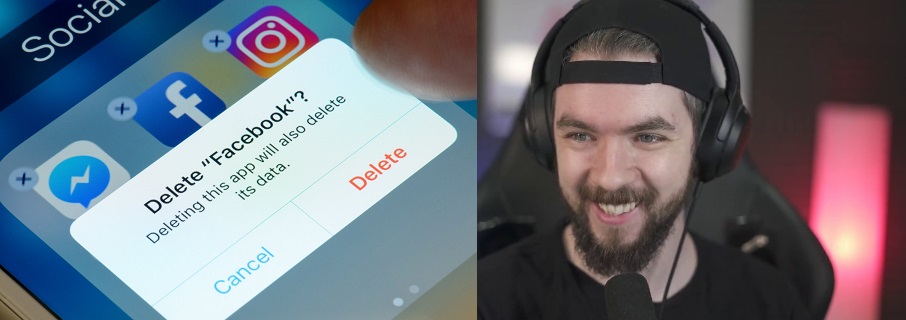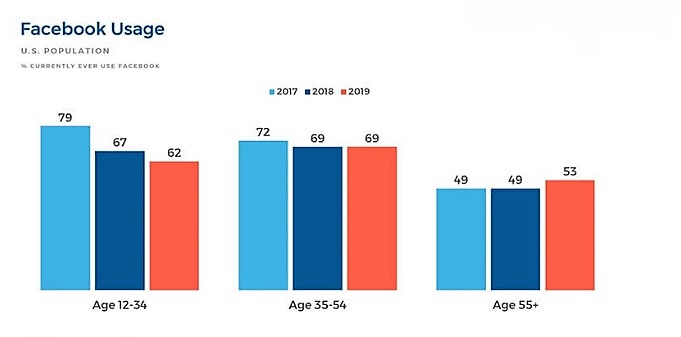Popular gamer Jacksepticeye says he hasn’t used Facebook in years, a reflection of the estimated 11 million Millennials who have ditched the social media site since 2017.
Facebook has found itself regularly in the news for insidious reasons, including the admission it had been collecting personal information about users and sharing it with third-party advertisers.
That breach of trust has lead many people, especially Millennials, to rethink the information they share with the social network.
“Does anyone still use Facebook?,” Jacksepticeye (real name Seán McLoughlin) asked on his YouTube channel. “Every now and then I’ll catch myself on a train or something and someone will be looking at Facebook on their phone, and I’m like, ‘whoa that’s weird.'”
He’s far from alone.
A recent study by Edison Research shows that Facebook is losing users at a rapid pace, specifically Millennials who are ditching the platform at a high rate, with more than 11 million leaving Facebook over the last two years.
“It’s like when I see someone smoking, like actually smoking cigarettes,” McLoughlin told his 23 million subscribers. “I’m so used to people vaping now, but seeing someone actually smoke is bizarre. To see someone on Facebook is like ‘whoa.’ I haven’t used Facebook in like four years and even back then I wasn’t really using it. Properly using Facebook it’s been eight years. I cannot believe it’s been that long.”
Edison estimates Facebook is hemorrhaging users in the US, losing about 15 million people since 2017.
“I don’t see how you couldn’t say it’s a meaningful drop. Fifteen million is a lot of people, no matter which way you cut it,” said Edison president Larry Rosin. “It represents about 6 percent of the total US population ages 12 and older. What makes it particularly important is if it is part of a trend. This is the second straight year we’ve seen this number go down.”
As of February 2019, 62 percent of 12-34 year olds in the US log into Facebook, down from 79 percent in 2017.
That represents about 11 million of the overall decrease.
The 35-54 age group has also seen a 3 percent decline over the last two years, with 69 percent of people using Facebook now versus 72 percent in 2017.
Older people on the platform are becoming more prevalent, with 53% of that demographic being active in 2019 versus 49% in 2017.
“There’s conjecture about as Facebook has become more popular among older people, whether that’s affected younger people. Then we have to consider whether some of these other social media platforms, in particular Instagram and Snapchat, are just more appealing to younger people,” Rosin said. “I should also mention that while we’ve seen dramatic reductions in usage among younger people, we’re still seeing some gains among people, for instance, 55 and older.”
Thus the reason why Facebook founder and CEO Mark Zuckerberg has been busy kissing up to President Trump in an effort to stabilize a solid Republican/conservative base of support.
Trump hosted a previously undisclosed dinner with Zuckerberg and Facebook board member Peter Thiel at the White House last month.
The meeting took place during Zuckerberg’s most recent visit to Washington, where he testified before Congress about Facebook’s new cryptocurrency Libra.
For McLoughlin, there is little chance he’ll return to Facebook anytime soon.
“I just don’t find a use for it anymore,” said McLoughlin. “Keeping up with friends and family, I use Twitter to keep up with friends. I use my messages to keep up with everybody else. I don’t think I need to be on Facebook.”
Facebook allowed Russian bots to post false and inflammatory content to bolster Trump during the 2016 election cycle.
Zuckerberg recently announced he would not remove completely untruthful political advertising in 2020.

